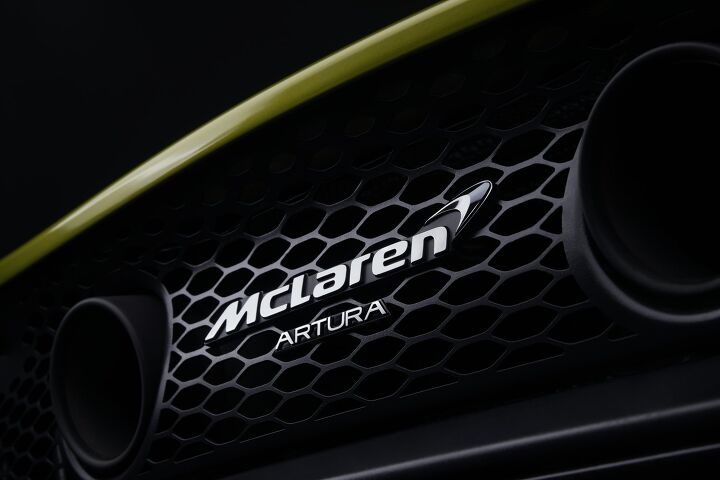McLaren CEO Mike Flewitt Leaving the Supercar Business

McLaren Automotive CEO Mike Flewitt will be stepping down after spending eight years at his post. The supercar manufacturer has stated that it’s already in search of his replacement, though that will be just one of several issues it needs to square away.
While Flewitt oversaw the brand’s impressive global expansion efforts and push to integrate new technologies needed for a broader product lineup, McLaren is still reeling from work stoppages done in response to the COVID-19 pandemic. Financial concerns have since encouraged the company to scale back its involvement in Formula One so it could prioritize its own survival, saving jobs wherever possible.
Considering the organization was presumed to be on the cusp of going public, it wasn’t an ideal time for McLaren to confront an economic disaster. But it’s been doing what it can to hang in there. Near the start of the pandemic, Flewitt said the automaker would need to shrink the £1.2-billion ($1.65 billion USD) “Track25” plan designed to help it launch over a dozen vehicle variants (all of which would be hybrids) by 2025.
This April, the company sold off and re-leased its headquarters in Woking (Surrey, England). But it had already begun the restructuring process, vowing to sell a significant portion of its racing arm to U.S. investors. Over the summer, McLaren raised $755 million from existing investors and the sale of preference shares and equity warrants to some new faces at the LA-based Ares Management Corp. and Saudi Arabia’s Public Investment Fund. Another $620 million was amassed via a bond issue.
While this has allowed the firm to resume some of its F1 involvement after a selloff, leadership has said some of that cash will be used to enter the EV-exclusive racing series. Thus far, McLaren has only confirmed Extreme E (presumably to appease the Saudi investors) for 2022. But it’s also filed for the option to run in the 2022 Formula E championship, assuming it feels like it can run a competitive season.
“I feel incredibly proud to have led McLaren Automotive through most of its first, highly-successful decade and am privileged to have played a part in the incredible McLaren story,” Flewitt in response to his departure. “This young company’s success is testament to the many passionate and talented people I have had the pleasure of working with and I look forward to seeing that success continue.”
McLaren Group has said that Michael Macht, a non-executive director who previously worked as the CEO of Porsche, will be taking care of operations while Chairman Paul Walsh will continue leading sales, marketing, and public relations. However, any additional duties will be temporary, as the business continues to look for a dedicated chief executive.
“Mike has been instrumental in McLaren now being recognised as one of the world’s leading luxury supercar brands, achieving the heights of success that have taken our competitors many more decades to achieve,” said Walsh. “We thank Mike for his tremendous contribution and wish him all the very best in his future [endeavors].”
[Images: McLaren Group]

A staunch consumer advocate tracking industry trends and regulation. Before joining TTAC, Matt spent a decade working for marketing and research firms based in NYC. Clients included several of the world’s largest automakers, global tire brands, and aftermarket part suppliers. Dissatisfied with the corporate world and resentful of having to wear suits everyday, he pivoted to writing about cars. Since then, that man has become an ardent supporter of the right-to-repair movement, been interviewed on the auto industry by national radio broadcasts, driven more rental cars than anyone ever should, participated in amateur rallying events, and received the requisite minimum training as sanctioned by the SCCA. Handy with a wrench, Matt grew up surrounded by Detroit auto workers and managed to get a pizza delivery job before he was legally eligible. He later found himself driving box trucks through Manhattan, guaranteeing future sympathy for actual truckers. He continues to conduct research pertaining to the automotive sector as an independent contractor and has since moved back to his native Michigan, closer to where the cars are born. A contrarian, Matt claims to prefer understeer — stating that front and all-wheel drive vehicles cater best to his driving style.
More by Matt Posky
Latest Car Reviews
Read moreLatest Product Reviews
Read moreRecent Comments
- Theflyersfan I wonder how many people recalled these after watching EuroCrash. There's someone one street over that has a similar yellow one of these, and you can tell he loves that car. It was just a tough sell - too expensive, way too heavy, zero passenger space, limited cargo bed, but for a chunk of the population, looked awesome. This was always meant to be a one and done car. Hopefully some are still running 20 years from now so we have a "remember when?" moment with them.
- Lorenzo A friend bought one of these new. Six months later he traded it in for a Chrysler PT Cruiser. He already had a 1998 Corvette, so I thought he just wanted more passenger space. It turned out someone broke into the SSR and stole $1500 of tools, without even breaking the lock. He figured nobody breaks into a PT Cruiser, but he had a custom trunk lock installed.
- Jeff Not bad just oil changes and tire rotations. Most of the recalls on my Maverick have been fixed with programming. Did have to buy 1 new tire for my Maverick got a nail in the sidewall.
- Carson D Some of my friends used to drive Tacomas. They bought them new about fifteen years ago, and they kept them for at least a decade. While it is true that they replaced their Tacomas with full-sized pickups that cost a fair amount of money, I don't think they'd have been Tacoma buyers in 2008 if a well-equipped 4x4 Tacoma cost the equivalent of $65K today. Call it a theory.
- Eliyahu A fine sedan made even nicer with the turbo. Honda could take a lesson in seat comfort.



































Comments
Join the conversation
I am terribly sorry to hear that. I was a devoted fan since day one.
Given the long history and tremendous sales growth of McLaren in the U.S. market, I'm surprised we don't see more personal anecdotes from owners. (I'm waiting at least 8 months to publish mine.) https://investors.mclaren.com/investors/group-news/year/all/mclaren-automotive-announces-record-global-sales Sometimes the vehicle turns out better if you Burn (and/or vaporize) the materials in advance: https://www.energy.gov/articles/top-9-things-you-didn-t-know-about-carbon-fiber (Thank you, Ohio.)